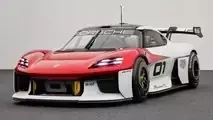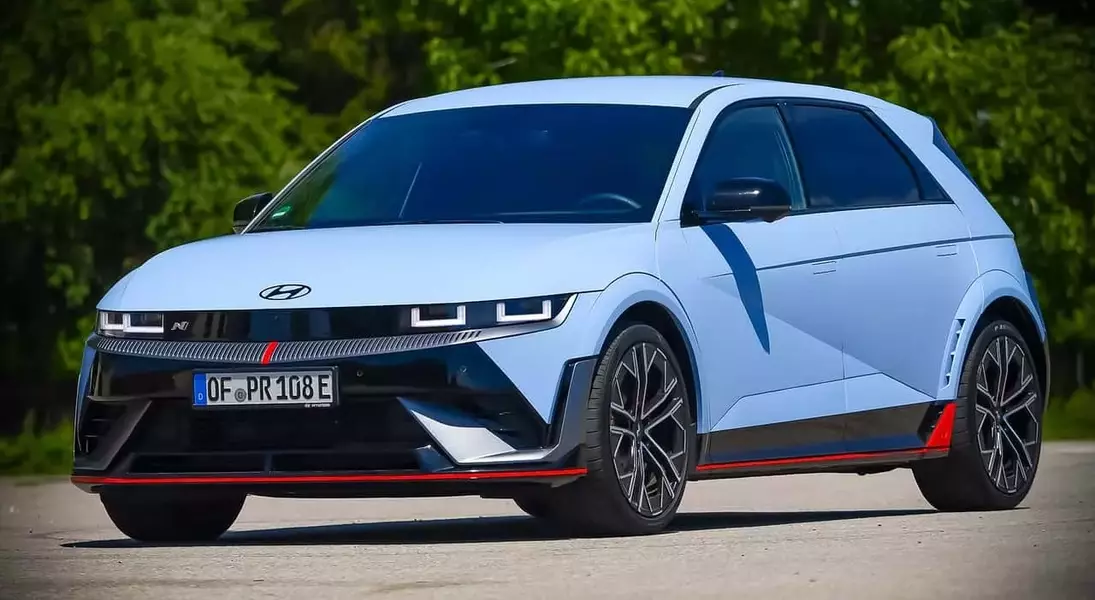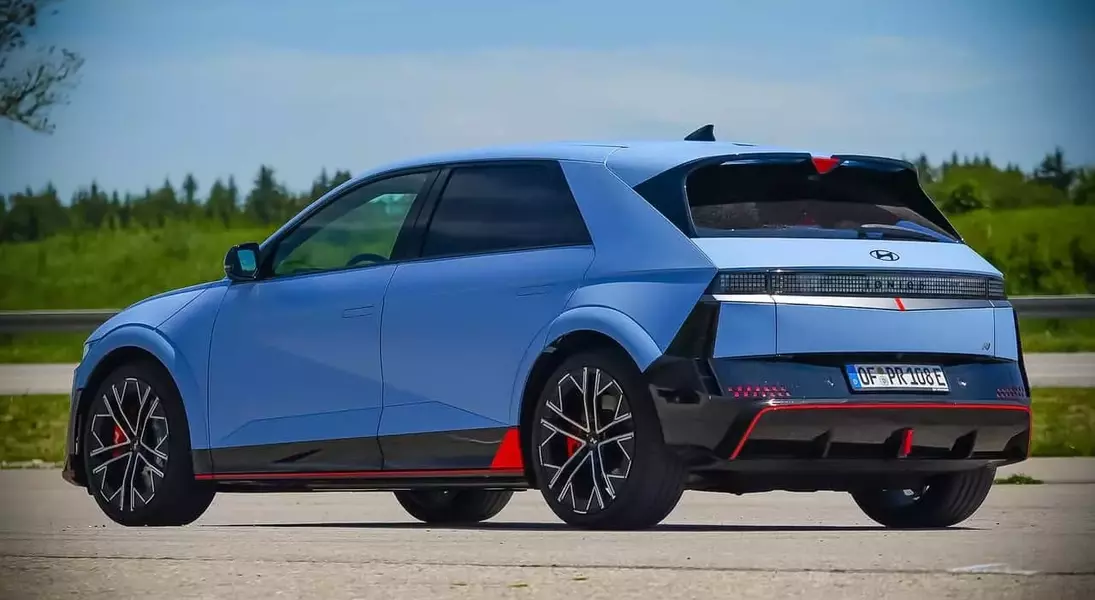




Porsche, a leading name in high-performance automobiles, has openly lauded the Hyundai Ioniq 5 N, citing its innovative features as an inspiration for future electric models. This endorsement from a traditional powerhouse signals a notable shift in the automotive landscape, where even established luxury brands are recognizing and adopting advancements from emerging electric vehicle (EV) manufacturers. The Ioniq 5 N's ability to simulate engaging driving experiences, through artificial sounds and gear shifts, has particularly caught Porsche's attention, demonstrating a potential path forward for electric sports cars to retain an emotional connection with drivers.
Hyundai's Ioniq 5 N, often considered a standout among performance EVs from South Korea, has undergone rigorous benchmarking by Porsche. Frank Moser, vice president of the 718 and 911 model lines at Porsche, described his experience with the Ioniq 5 N as "eye-opening." He specifically commended the car's engineering, noting that Hyundai's team had created something truly exceptional. Moser was especially impressed by the N Active Sound+ and N e-shift technologies, which provide artificial engine sounds and simulated gear changes, offering a more visceral driving experience in an electric car.
The influence of the Ioniq 5 N on Porsche's design philosophy is evident in their plans for the electric 718 Boxster and Cayman. Moser confirmed that these upcoming models would draw inspiration from Hyundai's approach to driver engagement. Porsche intends to integrate similar features, such as simulated flat-six engine sounds and virtual gear shifts, into their electric sports cars. However, a key emphasis is placed on giving drivers the autonomy to activate or deactivate these features according to their preference, ensuring a customizable driving experience.
An interesting anecdote shared by Moser involved convincing Andreas Preuninger, Project Manager for GT Vehicles, to test drive the Ioniq 5 N. Initially reluctant, Preuninger, known for his focus on track-oriented internal combustion engine cars, eventually relented. His reaction to the Ioniq 5 N's N Grin Boost mode, a feature that momentarily maximizes the dual motors' output to 641 hp and 568 lb-ft, was a simple yet powerful "Wow." This mode allows the vehicle to achieve 0-62 mph in just 3.4 seconds, though it requires at least 30 percent battery charge and a 10-second cooldown period between uses.
Looking ahead, Porsche is committed to introducing the electric 718 Boxster and Cayman by early 2027. While these models were initially envisioned as purely electric, Porsche has now indicated that "top" versions will also retain combustion engines. Moser acknowledged that the electric versions would be "a little bit heavier" than their gasoline-powered predecessors, which ceased production recently. However, he reassured enthusiasts that the electric 718s would still be remarkably lightweight for an EV. Recalling the Mission R, a Cayman-based race car concept weighing approximately 3,306 pounds with an 82-kWh battery, suggests a benchmark for the electric 718's weight. For those prioritizing the lightest possible next-generation 718, the hybrid combustion engine versions, potentially featuring a flat-six engine with a T-Hybrid setup similar to the 911 GTS, might be the preferred choice, though even these are expected to be heavier than the retired 982 generation.
The increasing appreciation from a brand like Porsche for Hyundai's advancements in electric vehicle technology underscores the rapid evolution within the automotive industry. It highlights a future where electric performance cars can offer an exhilarating and engaging driving experience, even without the traditional sounds and feel of a combustion engine, and sets a new precedent for collaborative inspiration across manufacturers.
